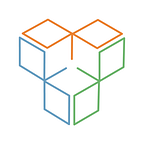On the Ethics of Open Science
By Nancy Kass
Ethics is an essential consideration for any research initiative that collects, uses, or reuses human data or samples. In data activities of these types, ethics concerns — whether raised by institutional review boards (IRBs) tasked with reviewing projects, or in the published literature — seem to focus almost entirely on questions of adequate privacy practices and security protections. Questions are raised about what fields are kept, what permissions have been provided for future access, and whether potential participants have adequately understood relevant parameters.
And yet considerations of ethics go beyond who gives permission for or has access to individuals’ data. Open science promises considerable ethical good: speeding up medical discovery, avoiding unnecessary duplication, creating efficiencies, and encouraging more democratic science. These are unquestionably ethical goods. But leaving discussions of ethics and open science simply to the good that can come and the need for privacy protections is concerningly narrow.
Open-science projects should also actively evaluate how the potential benefit of helping others actually will be realized, and what they can build into their structures to increase the chance that this will occur. Will open science simply allow users to do what they want with data as long as those whose data are included have been informed that the data will be widely shared? Or will the ethics of open-science support work to help ensure that goals, such as benefit and fairness, are more likely to be realized?
This might lead to a few questions that each open-science program might consider:
How open do you want open-data sharing to be?
Are open-science data repositories open by definition for use by everyone regardless of motives or intent? Or is any vetting of the user, the purpose, the commercial interests, or any screening for something nefarious ever part of the equation? Clearly there are risks and benefits from being truly open vs. open with strings attached. But the key is recognizing that there are risks and benefits to each strategy. Ignoring either of these does a disservice to considering the ethics of the enterprise.
What benefits come from open science?
The potential ethical good of open science lies in allowing a stunning increase in the number of discoveries that can be made, and the efficiency with which they can occur relative to traditional science. A critical empirical question is whether anyone is keeping track of the degree to which the hypothesized great potential is really occurring. And whose job it is, not only to set up open data, but to help make sure that the benefit — better diagnoses, better treatments, etc. — of having such data be open are actually realized and not just that more analyses are conducted? Because open science is designed with fewer guard rails, it is essential to ensure that the potential benefit of working in this manner is actively facilitated and not left to chance. While individual participants may choose to opt-in or opt-out of various initiatives, thinking intentionally about the ethics of an activity itself is a form of meta ethics that is central to open science.
Who benefits from open science? Does that end up being fair? And can we put small structures in place to increase the chance that broad commitments to benefit and fairness are realized?
Without deliberate attention, it is unlikely that the benefits of open science will result in better care for those who are most disenfranchised, a narrowing of health inequalities, or a targeting of at least a few conditions that disproportionately affect those at the bottom of the barrel. It’s not that anyone is unsympathetic to those questions or would ever suggest that such questions not be addressed through data available through open science platforms. Without a structure or system that ensures at least some percentage of the work that emerges must focus on questions of this sort, it likely won’t happen in any large, concerted way. In the same way that the national genome project required a small percentage of their federal dollars to go to research questions on the ethical, legal, and social implications of genetics research, should open science ever require that some proportion of open-science analyses focus on questions of social justice? The options are countless and, again, leaving this to chance may help to guarantee that disparities will continue to grow wider rather than narrower.
Are there or should there be community partners?
Is there any relevance for having, or encouraging, community partners for at least some numbers of questions that might be asked of open-science data? Is it worth having some pilot projects to see if doing so changes the nature of the questions, the ways in which data are analyzed, or what happens with analyses once the technical component is completed? And partnerships may also need technical experts — someone who can make some sense out of patterns that emerge from data, to help distinguish the gold from the noise.
Open science is a movement to further discovery, increase collaboration, and, ultimately, to wildly magnify the likelihood and frequency of benefit. Building on that vision with additional commitments to achieving benefit — not only allowing platforms for benefit — and to ensuring that there are always a few ongoing projects that relate to inequity or that work on the needs of those with the worst health outcomes or highest needs, could potentially deepen the vision further. It could also lead to some of those individuals asked to provide their permissions with greater personal interest in doing so.
About: Nancy Kass, ScD, is the Vice Provost for Graduate and Professional Education and the Phoebe R. Berman Professor of Bioethics and Public Health at Johns Hopkins, where she is also both the Deputy Director for Public Health in the Berman Institute of Bioethics and Professor of Health Policy and Management in the Johns Hopkins Bloomberg School of Public Health.
Originally published at http://sagebionetworks.org.
